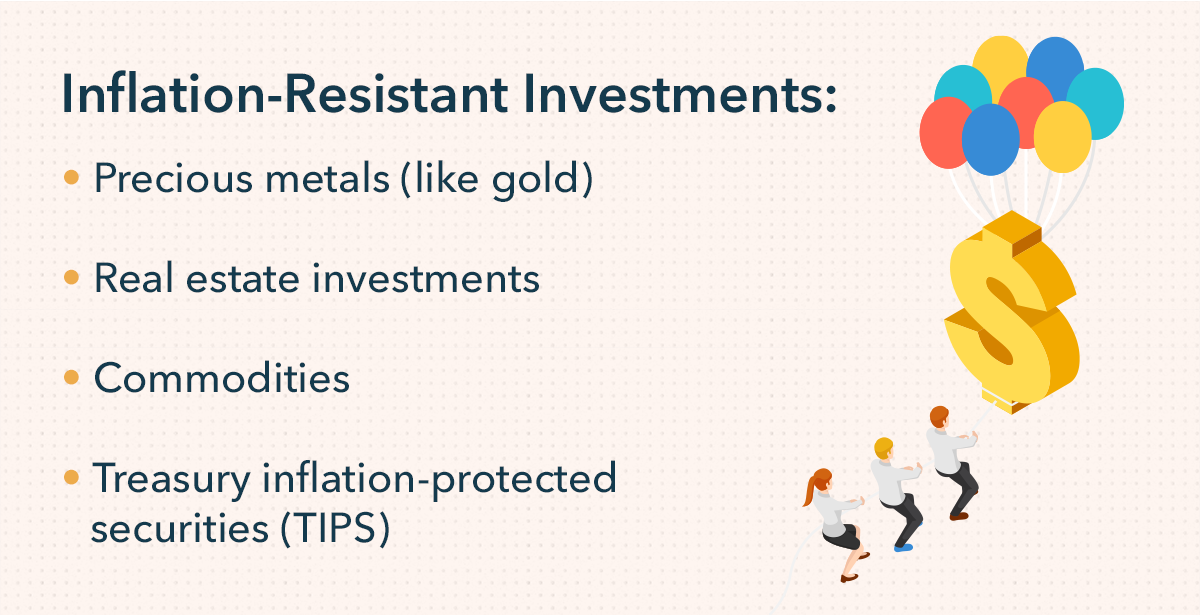Inflation calculator (find the value of a dollar by year)
Over time, the average cost of goods and services increases. As a result, you’ll need more money to buy the same thing—called Inflation. The opposite of inflation is deflation, where the price of goods and services decreases over time. In the past hundred years, however, the most common phenomenon has been inflation. On average, between the beginning of the 20th century and today, the rate of inflation has been around 2-3% or so.
Why is inflation important? Inflation affects the prices of everything: from everyday necessities to luxury goods and services. When inflation rates are high, and wages are stagnant, this can become a serious problem for those trying to avoid it. If you’re curious how much money was worth in the past, or you want to know how much it might be worth in the future, it’s helpful to try our inflation calculator.
inflation calculator
Calculate Inflation Adjustment for Any Amount fill in the fields below,
Starting amount:
Starting amount: This is the amount you have just invested.
Select starting year:
Early Years: This can be either the current year or the first year when you started investing.
Select final year:
final year: This is the year you intend to withdraw your investment.
0.00%
average inflation rate
0.00%
cumulative inflation
Dollar ($) value over time
learn more…
This calculator was created using public information from the Bureau of Labor Statistics at https://www.bls.gov.
Here’s what we’ll cover in this post:
How to Use Our Free Inflation Calculator
Follow the simple steps below to see how inflation will affect your income and investments.
Step 1: Enter the initial amount
Start by entering your starting amount. This could be the amount you have in savings, the amount you have invested in an investment account, or your retirement. Note that inflation does No Take into account factors such as an increase in interest or an investor adding more money to the account.
Step 2: Select the year from which you want to start measuring inflation
in the labeled section Choose starting year, you have two options:
- Select the current year to see how much your starting amount will be worth in the future.
- Or, input the year you first started investing to get a more cumulative estimate of the amount by which inflation has affected your investments.
Step 3: Select the last year you want to measure inflation
in the labeled section Select final year, add the year in which you plan to withdraw your investment—or just one year in the future that you’re curious about. It could be the date you plan to retire, or it could be a year in the future when you anticipate that you will be interested in making a big purchase like a home or a new car.
Step 4: Review your results and plan accordingly
In the end, just check your results. Keeping these results in mind, you can better plan for future expenses, investments and savings. Inflation isn’t the only factor that goes into financial planning, but it’s one that many people often forget to consider as they plan for their money long-term. Taking a look at the inflation rate and using an inflation calculator can be a great addition to your current planning habits.
Inflation Calculator FAQ
Inflation is confusing – we get it. Once you’ve used our free inflation calculator, check out the most common questions miners ask about inflation to see if we can answer anything on your mind.
1. How has inflation behaved throughout history?
Inflation has changed greatly throughout American history. Major economically significant events such as the Depression, WWII, and even the Moon landing have had an impact on inflation rates. The rate of inflation is often tied to how well the economy is doing. Most economists estimate that about 2% are healthy; Less, and the economy is not growing sufficiently. Increasingly, more people may struggle to keep up with rising prices.
US inflation rate reaches one an all-time high of 23.7% In June of 1920, the roaring ’20s were the beginning when economic output was high. One of the shortest periods of inflation was the period of deflation during the Great Depression in the 1930s. Over the past decade, inflation has hovered around 2% – although it has increased significantly in the year since 2021.

2. How does the rising inflation rate affect my income?
Wage growth must be equal to or higher than the rate of inflation to maintain stable purchasing power.

If your rate of increment is less than the rate of inflation, You are losing purchasing power year after year. High inflation puts pressure on businesses to pay their employees more, and puts even more pressure on working people who need stable purchasing power to make ends meet.
If your salary increase doesn’t match the rate of inflation, you may need to supplement your salary with additional income. This could be through a second job or investment. You can also look for a job that will increase your salary at a pace (or even better, faster) with the rate of inflation.
3. How do I budget with inflation in mind?
Rising inflation can make everything expensive. If your purchasing power isn’t growing at the same rate as inflation, it can be tough to buy the same things you easily bought a few months ago.
Lately, many people have noticed that prices for everything from used cars and rentals to a cup of coffee and sandwiches have skyrocketed. According to the latest data, consumer price Index grew 5.3% over the year ended August 2021.

what does this mean? It’s time to add inflation to your budget ideas. As you plan your future spending, be sure to think about how much more money you’ll need to buy the same thing a few months or years from now.
Pro Tip: Use the inflation calculator to see how much a certain dollar amount will be worth in the future—and our . use budget calculator For quick insight into your finances.
4. How are investments affected by inflation?
All investments are affected differently by inflation. The money in a savings account with an interest rate lower than the rate of inflation will actually be lose value, That’s why it’s often important to invest a portion of your savings in an account or asset whose value will grow faster than the rate of inflation.
Some investments, however, Price may increase with inflation. for example, Impact of Inflation on Housing There’s a difference. Assets can become more expensive over time, meaning that investing in the property will actually increase in value as inflation continues. This is good for homeowners, but bad for home buyers looking for a deal.
5. Which type of investment fares best under rising inflation rates?
As mentioned, there are some investments that do well under inflation and some that don’t. Here are some of the best assets to invest in to protect against periods of high inflation:
- Precious metals (like gold): As the price of everything rises, so does the price of gold. Also, many people may be on the lookout for a stable commodity when inflation rises, making gold a useful asset to have on hand. Investing in precious metals such as silver, platinum and palladium can also be tempting.
- Real Estate Investing: Real estate also tends to increase in value along with inflation, making it a fairly safe option as long as you can afford to maintain it.
- Commodities: Many commodities can be useful investments during inflation. This is because, as the price of a commodity rises, so does the price of the parts needed to make it.
- Treasury Inflation-Protected Securities (TIPS): These securities held by the U.S. Treasury are indexed at the inflation rate, meaning that as inflation rises, so is their value. They are completely safe from inflation. bad news? They also do not offer significant benefits compared to other investment types.
Depending on your rate of return, other investment types, such as mutual funds, government bonds, or dividend stocks, may also outpace inflation, leading to profits. Ultimately, it’s important to research or talk with a broker about the best option for your portfolio.

6. How can you prepare for retirement based on forecasted inflation?
The best way to prepare for retirement is to start saving early. Most retirement accounts, such as IRAs and 401ks, use mutual funds or ETFs that are indexed on the stock market to grow your savings. with the power of Compound Interest, this can result in a higher price that exceeds the rate of inflation.
In addition to starting early, it’s smart to invest in something safe, More stable investments that can protect against inflation, such as property. You can get a pension from work as well as Social Security income, which is adjusted for inflation.
Manage your budget and investments with ease
Keeping track of your budget and investments can be difficult—especially if you’re also accounting for inflation. Mint can help. Whether you’re using the inflation calculator on this page, or you just want to keep track of your various investment accounts, using Mint is a great way to manage your finances. Tea mintapp One intuitive dashboard makes it easy to view all your assets, track your net worth, and plan a budget for each month. So no matter what the inflation rate, you can be sure that you have the data you need to plan ahead.
More inflation articles and resources:
Know what is inflation.
Here’s how to calculate the inflation rate.
Review the basics of inflation and how it works.
Learn how inflation affects home buying.






